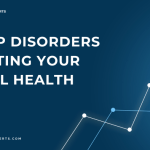Table of Contents
- Introduction
- Understanding the Connection Between Nutrition and Sleep
- Tip 1: Incorporate Magnesium-Rich Foods
- Tip 2: Prioritize Tryptophan Sources
- Tip 3: Choose Complex Carbohydrates
- Tip 4: Stay Hydrated, but Not Too Much
- Tip 5: Limit Caffeine and Nicotine Intake
- Tip 6: Don’t Skip Dinner
- Tip 7: Be Mindful of Alcohol Consumption
- Tip 8: Timing Your Meals
- Tip 9: Opt for Herbal Teas
- Tip 10: Keep a Sleep Diary
- FAQs
- Conclusion
- References
Introduction
Getting a good night’s sleep is crucial for overall well-being, yet many people struggle with sleep quality. Fortunately, the food we eat can significantly influence our ability to fall asleep and stay asleep. In this article, we’ll explore ten nutritional tips that can enhance your sleep quality, ensuring you wake up refreshed and ready to tackle the day. If you’re interested in the broader benefits of sleep on mental health, check out our article on 7 Ways Sleep Affects Your Mental Well-Being.
Understanding the Connection Between Nutrition and Sleep
Nutrition plays a vital role in regulating sleep patterns. Certain nutrients can promote relaxation, while others can disrupt sleep. For instance, foods rich in magnesium can help calm the nervous system, and those containing tryptophan can induce sleepiness. Understanding the link between what we eat and how we sleep can empower you to make better dietary choices for a restful night. For more insights on how nutrition impacts mental health, consider reading about 7 Nutrients to Combat Anxiety Naturally.
“The relationship between nutrition and sleep is a fascinating area of study. What we eat can either help us drift into a restful slumber or keep us tossing and turning all night.”
Tip 1: Incorporate Magnesium-Rich Foods
Magnesium is a mineral known for its calming effects. Low levels of magnesium have been linked to insomnia and sleep disturbances. Foods high in magnesium include:
| Food | Magnesium Content (mg per 100g) |
|---|---|
| Spinach | 79 |
| Almonds | 268 |
| Black Beans | 70 |
| Pumpkin Seeds | 262 |
| Avocado | 29 |
Incorporating these foods into your diet can help promote better sleep. For more information on magnesium’s role in sleep, check out this study from the National Institutes of Health here.
“A study from the National Institutes of Health highlights magnesium’s importance in sleep regulation. Including magnesium-rich foods in your diet may be a simple yet effective step towards better sleep.”
Tip 2: Prioritize Tryptophan Sources
Tryptophan is an amino acid that the body uses to produce serotonin, which in turn converts to melatonin, the sleep hormone. Foods rich in tryptophan include:
- Turkey
- Chicken
- Eggs
- Nuts and seeds
- Dairy products
Adding these foods to your evening meals can foster a more restful sleep. For an in-depth look at tryptophan and its effects, visit Harvard Health.
Tip 3: Choose Complex Carbohydrates
Complex carbohydrates can increase the availability of tryptophan in the brain, promoting sleepiness. Good sources include:
- Whole grains (brown rice, quinoa, oats)
- Vegetables (sweet potatoes, carrots)
- Legumes (lentils, chickpeas)
Incorporating complex carbs into your dinner can help you wind down and prepare for sleep. For more on carbohydrates and sleep, you can refer to the American Journal of Clinical Nutrition.
“Complex carbohydrates not only provide sustained energy but also help in the production of serotonin, setting the stage for a good night’s sleep.”
Tip 4: Stay Hydrated, but Not Too Much
Hydration is essential for overall health, but drinking too much liquid close to bedtime can lead to frequent trips to the bathroom during the night. Aim to drink adequate water throughout the day but limit your intake in the hour leading up to bedtime.
“Striking a balance in hydration is key. While you want to stay hydrated, overdoing it right before bed can have the opposite effect on your sleep quality.”
Tip 5: Limit Caffeine and Nicotine Intake
Caffeine is a well-known stimulant that can disrupt sleep. It’s found in coffee, tea, chocolate, and many soft drinks. Aim to cut off caffeine consumption by the early afternoon. Similarly, nicotine is a stimulant that can keep you awake, so try to avoid it, especially in the evening. For more strategies to manage stress and promote relaxation, check out our article on 10 Proven Stress Management Techniques for Daily Relief.
Tip 6: Don’t Skip Dinner
Skipping dinner can lead to hunger pangs that make it difficult to fall asleep. A light, balanced dinner with protein, healthy fats, and complex carbohydrates can help keep you satisfied without feeling overly full. Consider a meal such as grilled chicken with quinoa and steamed broccoli for a nutritious option.
“A balanced dinner not only nourishes your body but also sets the stage for a restful night. Skipping meals can lead to unwelcome wakefulness.”
Tip 7: Be Mindful of Alcohol Consumption
While alcohol may initially help you relax, it can disrupt your sleep cycle and reduce sleep quality. If you choose to drink, do so in moderation and avoid consuming alcohol close to bedtime. For more information about alcohol and sleep, check out the Centers for Disease Control and Prevention here.
Tip 8: Timing Your Meals
Eating too close to bedtime can lead to discomfort and indigestion, hindering your ability to fall asleep. Aim to finish eating at least two to three hours before you hit the sack. This gives your body enough time to digest the food and prepares it for rest.
“The timing of your meals can be just as important as what you eat. Allowing your body to digest properly can pave the way for a smoother transition into sleep.”
Tip 9: Opt for Herbal Teas
Herbal teas, like chamomile, valerian root, and lavender, have been used for centuries to promote relaxation and improve sleep quality. A warm cup of herbal tea before bed can signal to your body that it’s time to wind down. Just ensure they are caffeine-free!
Tip 10: Keep a Sleep Diary
Tracking your food intake alongside your sleep patterns can help identify what works for you. Note how different foods affect your sleep quality. This practice can empower you to make informed dietary choices that enhance your sleep.
“Maintaining a sleep diary can illuminate patterns in your eating and sleeping habits. This awareness is the first step towards optimizing your sleep quality.”
FAQs
1. What foods should I avoid before bed?
Avoid heavy, rich foods, spicy dishes, caffeine, and alcohol close to bedtime, as they can disrupt sleep.
2. Can diet alone improve my sleep quality?
While diet plays a significant role, a holistic approach that includes good sleep hygiene and stress management is most effective.
3. How long before bed should I eat?
Aim to finish eating at least two to three hours before going to bed for optimal digestion and comfort.
Conclusion
Improving your sleep quality is within your control, and nutrition plays a key role in this process. By incorporating these ten tips into your daily routine, you can enhance your chances of enjoying restorative sleep. Remember, it’s about creating a balanced lifestyle that nurtures both your body and mind. For further insights into enhancing your mental health, consider reading about 10 Ways Positive Thinking Boosts Emotional Well-Being. Sweet dreams!
References
- National Institutes of Health, Magnesium Health Professional: Link
- Harvard Health, Tryptophan and Sleep: Link
- American Journal of Clinical Nutrition: Link
- Centers for Disease Control and Prevention, Alcohol and Sleep: Link
Feel free to share your experiences or any additional tips you may have in the comments below!





